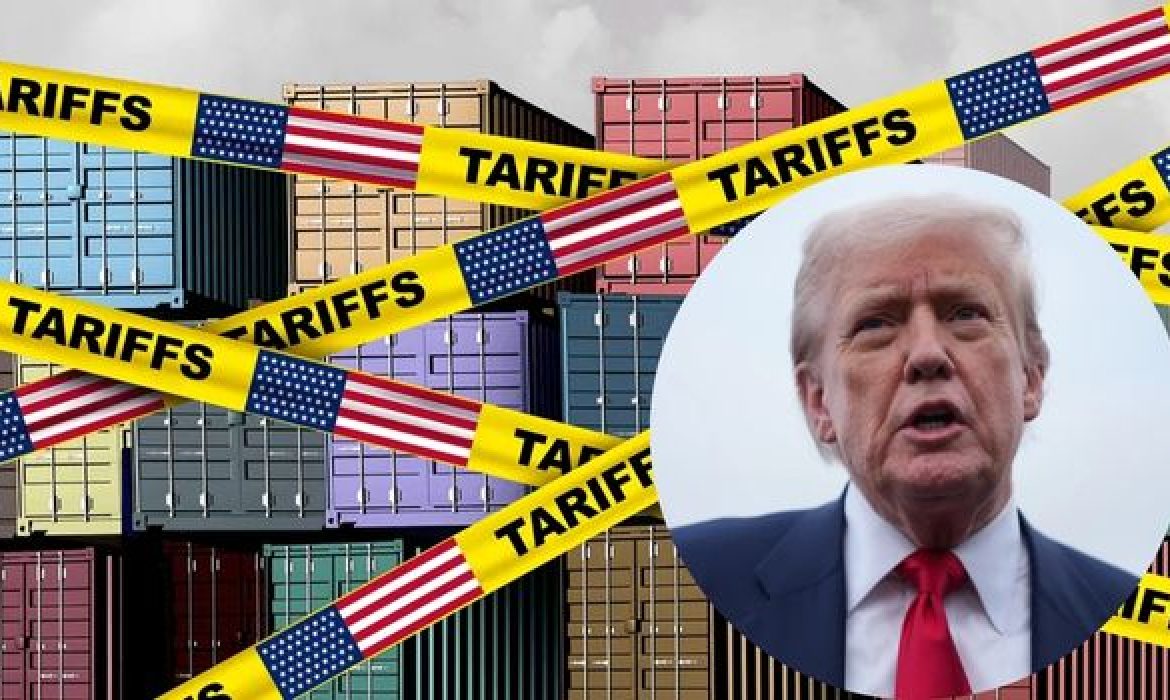
Courtesy of the Research Department at Balfour Capital Group
Key Points
- Trump’s sweeping tariffs raise U.S. effective rate to 18%: Sparking global inflation concerns.
- European markets slide: Stoxx 600 drops 1.3% amid tariff-driven selloff in pharma and luxury stocks.
- Asia-Pacific equities retreat: South Korea’s Kospi plunges 3.88% following tariff revisions.
- Indian refiners halt Russian oil imports: As discounts fade and U.S. pressure escalates.
Trump Tariffs Jolt Global Trade, Heighten Inflation Risks
U.S. President Donald Trump signed a sweeping executive order imposing new tariffs ranging from 10% to 41% on a broad array of countries, escalating global trade tensions. The effective U.S. tariff rate is expected to jump to 18%, up from 2.3% last year, raising concerns over inflation and global growth slowdowns.
Analysts warn the move could disrupt global supply chains and undermine investor confidence, despite exemptions for key sectors in countries like Malaysia. While some nations may still negotiate exemptions, economists forecast domestic inflationary pressures and competitiveness distortions, particularly for foreign producers serving the U.S. market.
European Markets Slide as Tariff Pressures Weigh on Stocks
European equities sold off sharply Friday as investors reacted to President Trump’s sweeping tariff escalation. The Stoxx Europe 600 dropped 1.3%, with heavier losses in the CAC 40, DAX, and MIB.
Swiss luxury and pharmaceutical sectors came under pressure following a 39% U.S. tariff on Swiss imports and drug pricing demands sent to 17 global pharma firms. Novo Nordisk and AstraZeneca fell nearly 4%.
Despite strong earnings, IAG’s shares dipped amid macroeconomic headwinds. The sell-off underscores investor anxiety over trade-related growth risks and rising input costs across Europe’s industrial, consumer, and healthcare sectors.
Asia-Pacific Markets Slide on Trump Tariffs and Weak China Data
Asia-Pacific equities declined sharply on Friday following President Trump’s sweeping tariff revisions, with levies ranging from 10% to 41%. South Korea’s Kospi plunged 3.88%, while tech-heavy indices across Japan and Hong Kong also retreated.
The region’s tech sector bore the brunt, with major names like Tokyo Electron and SK Hynix posting notable losses. Meanwhile, China’s Caixin manufacturing PMI dropped below the 50 threshold, signaling contraction and compounding investor unease.
Despite Morningstar’s assessment that the tariff impact was largely expected, concerns over stalling U.S.-China trade talks and subdued global demand continued to weigh on sentiment.
Indian State Refiners Halt Russian Oil Purchases Amid Tariff Threats
India’s state-run refiners have paused Russian oil purchases over the past week as price discounts narrowed and geopolitical pressure intensified. The move follows President Trump’s threats of 100% tariffs on nations continuing to buy Russian crude unless a Ukraine peace deal is reached.
While private Indian refiners like Reliance and Nayara continue their Russian oil imports under long-term deals, state entities are shifting to Middle Eastern and West African alternatives. With Russia accounting for roughly 35% of India’s crude supply, the shift underscores the growing strain on Moscow’s oil revenues and the escalating reach of U.S. trade pressure.
Conclusion
This week’s developments underscore the renewed volatility gripping global markets as the Trump administration enforces sweeping tariff adjustments, amplifying trade tensions across Europe and Asia.
Equity markets responded sharply, with notable losses in the Stoxx 600 and Asian benchmarks. Tariffs are also beginning to distort energy flows, as evidenced by India’s retreat from Russian crude amid shrinking discounts and geopolitical pressure.
Investors should brace for increased market sensitivity to political risk, inflationary signals, and trade-driven disruptions. Strategic positioning around defensives, energy alternatives, and supply chain-resilient sectors may prove critical in the evolving macroeconomic landscape.
Investment Insights
- Global Tariff Shockwaves: The sweeping U.S. tariff hikes are likely to pressure corporate margins globally, particularly in export-heavy sectors such as autos, luxury goods, and pharmaceuticals. Investors should monitor currency volatility and reassess exposure to trade-sensitive equities.
- Equity Market Risk-Off Sentiment: The sharp sell-off in European and Asian equities reflects heightened geopolitical risk pricing. Investors may consider rotating into defensive sectors and increasing cash or fixed-income allocations as a buffer.
- Energy Market Repositioning: India’s shift away from Russian crude highlights growing supply uncertainty and potential price volatility in energy markets. Strategic allocation to U.S. energy and midstream assets may offer upside.
- Tech and Supply Chain Realignment: With Asian tech stocks under pressure and new capital-raising activity in India, selective opportunities may emerge in firms with resilient supply chains and strong domestic demand.
Upcoming Key Dates to Watch
| Date | Event | Why It Matters |
|---|---|---|
| Aug 1, 2025 | U.S. Nonfarm Payrolls (July) | Labor data pivotal for Fed’s rate decision and growth outlook |
| Aug 1, 2025 | U.S. Participation & U‑rate / U6 Unemployment Rate (July) | Broader employment trend confirms labor market strength |
| Aug 1, 2025 | Private Payrolls (July) | Private sector labor health—key for consumption outlook |
| Aug 1, 2025 | China & India S&P Global Manufacturing PMI (July) | Manufacturing momentum in key emerging economies |
Disclaimer: This newsletter provides financial insights for informational purposes only. It does not constitute financial advice or recommendations for investment decisions.




